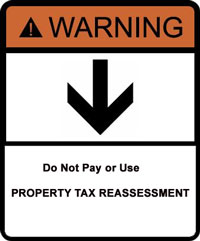
- Another picture of a professional dog walker. Possible new occupation for some of the people on CNBC (I’m still in Buenos Aires and I love dogs)
I love comedy. Comedy takes a complex situation and makes it so easy to understand. This was so much so with the Comedy Central’s skid by Jon Stewart taking on the high and mighty prognosticators of stock market trends on CNBC. Those advisors on CNBC are always full of advice of which stocks to buy, interviewing CEO’s of large companies and glowing about their potential outcome. Jon Stewart shows several of these interviews by them. He then shows the outcome shortly afterwards where for all of their wisdom the companies fail. I love the interview shown of Sir Allen Stanford, a billionaire at the time of the interview on CNBC. Shortly after the interview, the FBI stated that they think Sir Stanford is running a Ponzi scheme.
But the most telling part of the program was when they showed Rick Santelli ranting and raving at the Obama Administration for giving a small portion of the bailout money to homeowners facing foreclosure. Wow, what a rant. (By the way, Santelli was supposed to appear on the show, but didn’t show) But Jon Stewart puts it all in perspective when he proceeded to show that these icons of prognosticators had no problem with the present and past Administrations giving billions of bailout funds to banks, General Motors, Chrysler, AGI and other large companies.
You know it’s easy to place the blame on people facing foreclosure because they should have known what they were getting into when they took out a loan to buy a house. But who set the standards for these loans? It wasn’t the Realtors or the mortgage brokers or the homeowners. Yep, it was the banks setting the lending standards, enticing people into buying a home with low interest rates. Once people bought a home, the loan was set to trigger into a higher interest rate. Don’t you think the banks knew some people could not afford the mortgage? In the old days they called that bait and switch. Now who is getting the majority of the bailout funds, hummm, of course, the banks.
I don’t know what CNBC’s qualifications are to hire Rick Stanletlli or any of the other interviewers. Is it that they are highly educated to help people lose their money, or are they poorly trained psychics? So Rick and his cohorts are hired by CNBC to advise people of the best stocks to buy, and they are almost always 100 percent wrong, so why are they picking on people who are losing their homes? Is it because the homeowners are not as educated in financial matters as they are and should have never bought a home? (Or their stock recommendations)
Like Jon Stewart said, “If I had listened to them, I would be a millionaire, that is, if I had started out with $100 million.” Their coding is screwed up so here’s the best i could do here’s the link to the video.







